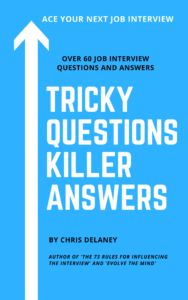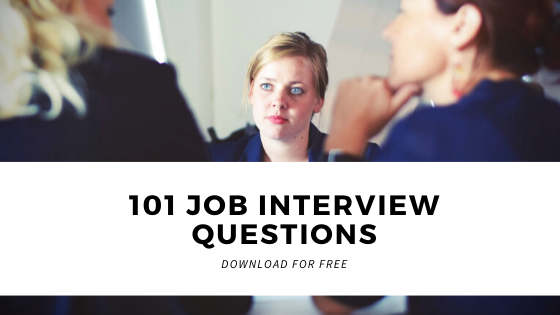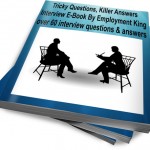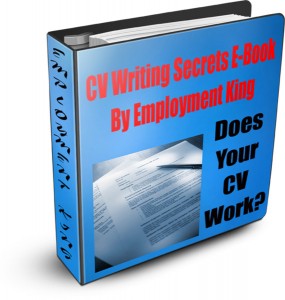101 Interview Questions
PDF VERSION
What Interview Questions you will be asked in a job interview.
Knowing the questions you are going to be asked during an interview is essential, once you know the interviewers question you can prepare your interview answer.
I would add what is more important than knowing the interview question is knowing why they are asking the question in the first place, as this will tell you what experience or skill you need to highlight with your answer.
Today you will learn the most common 101 interview questions; all you need to do is prepare your answers.
101 Job Interview Questions
- Tell me about yourself?
- Why did you pick our company to apply for?
- Why should we hire you?
- What is your current experience in this role?
- What are your strengths?
- What are your weaknesses?
- If you could sum yourself up in one line, what would it be?
- Do you have any questions for me?
- Have you ever done anything you are embarrassed about?
- Why do you want to work here?
- Where do you see yourself in 10 years?
- Tell me about your ability to work under pressure.
- What has been your greatest accomplishment?
- What is your long-term goal?
- Why are you a good communicator?
- Do you consider yourself to be a good manager?
- What is your definition of great customer service?
- Describe a time when you dealt with conflict.
- Why did you leave your last position?
- How would your co-workers describe you?
Tricky Question, Killer Answers

- How would your manager describe you?
- Are you a team player?
- What is your philosophy towards work?
- Can you work well under pressure?
- How do you manage projects?
- Do you consider yourself successful?
- Give an example of when you have had to work alone
- How do you motivate people?
- Have you ever delivered a presentation?
- Describe a situation you took full responsibility for a project
- How do you define success?
- What motivates you to do your best on the job?
- How do you establish a working relationship with new people?
- How long do you expect to work for us?
- What are some of your expectations for your future employer?
- How do you handle that stress?
- Describe a work-related problem and how you solved them.
- Do you possess any relevant work experience?
- Have you ever dealt with an unsatisfied or angry customer?
- How do you think you will compensate for your lack of experience?
How to answer any interview question

- Why did you choose your career?
- How have you changed during your career?
- How do you approach challenging problems?
- How do you evaluate yourself?
- How do you ensure you meet sale targets each week
- If you disagree with your supervisor on an important issue of the job, what will you do?
- What do you know about our company?
- Do you understand the meaning of equal opportunities and diversity?
- How to answer tricky interview questions
- Tell me about a suggestion you have made and the outcome from this
- Tell me about a time that you contribute to a team activity
- What is your main career aim?

- How can social media websites promote our business?
- What was the most useful criticism you received? Who was it from?
- How would you describe the pace at which you work?
- Describe a typical workday.
- What amount of money are you worth?
- What has disappointed you in a job?
- What would your previous supervisor say your strongest point is?
- Are you willing to travel?
- What do you feel about diversity in the workplace? Do you think it is important?
- Do you consider yourself overqualified for this position?
- Do you know anyone who works for us?
- What one word describes you?
- Do you possess a criminal record?
- How do you prioritize your work to meet deadlines?
- What is your typing speed – words per minute?
- How do you handle rejection?
- How long have you been looking for a job?
How to answer tricky interview questions – over 60 questions and answers

- Tell me the difference between good and exceptional.
- What is more important to you, the money or the work?
- What did you do when you had a deadline and didn’t make it?
- Would you consider yourself an organized person?
- What ITC packages can you use?
- Describe what qualities would you like to see in a supervisor?
- What new skills have you developed recently?
- Would you say you are under qualified?
- How do you relate to your co-workers?
- Please explain the gap on your CV?
- Give me an example of when you have handled large amounts of money
- How do you relate to your boss?
- How would you promote our services?
- If you were hiring someone for this job, what would you look for?
- What position do you take when working on a team?
- Have you ever been fired?
- Can you explain how you initiate communications with customers?
- What can you contribute to our company?
- Have you ever had to fire anyone? How did you feel about that?
- What would you do if your employer instructed you to do something that was unethical
- What significant trends do you see in our industry?
- Do you know the history of this industry?
How to answer tricky interview questions

- In hindsight, how could you have improved your performance at previous jobs?
- Why did you stay in this position for such a short time?
- Name reasons why you would leave a job?
- Tell us about a time when you failed to meet a deadline
- What does excellent customer service mean to you?
- What do you enjoy doing in your spare time?
- Please list three areas of yourself, you feel have opportunities for improvement
- What would you consider as your biggest achievement to date?
- Please tell us about any relevant experience.
- What do you like least about your job?
- Can you provide examples of when you have given outstanding customer service
Tricky Questions Killer Answers





